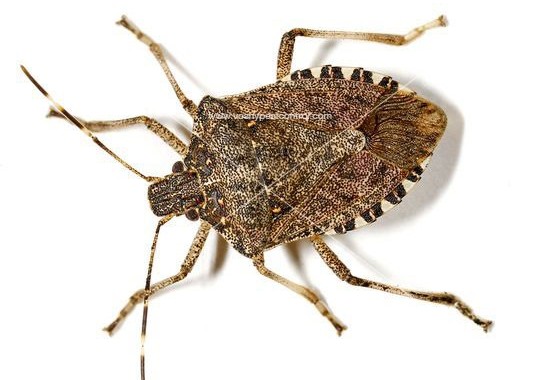
49 days to go! 2020/2021 BMSB Season
July 14, 2020
The 2019/20 season has not long finished and we are very quickly approaching the 2020/21 BMSB season.
In preparation, please make sure your suppliers are aware of the new 2020/21 Brown Marmorated Stink Bug season requirements which have now been published on the Department of Agriculture, Water & the Environment website.
| The below information has been collated from our Industry sources, Freight Trade Alliance (FTA) and from the Department of Agriculture, Water and the Environment (DAWE). Links provided below for further reference. The BMSB risk season is for goods and vessels that arrive in the Australian territory between 1 September 2020 and 31 May 2021 (inclusive). Goods must be treated for BMSB if exported between 1 September 2020 and 30 April 2021 (inclusive). Published measures: https://www.agriculture.gov.au/import/before/brown-marmorated-stink-bugs Target Risk Countries: https://www.agriculture.gov.au/import/before/brown-marmorated-stink-bugs#what-are-the-target-risk-countries Albania, Andorra, Armenia, Austria, Azerbaijan, Belgium, Bosnia and Herzegovina, Bulgaria, Canada, Croatia, Czechia, France, Japan (heightened vessel surveillance only), Georgia, Germany, Greece, Hungary, Italy, Kosovo, Liechtenstein, Luxembourg, Montenegro, Moldova, Netherlands, Portugal, Republic of North Macedonia, Romania, Russia, Serbia, Slovakia, Slovenia, Spain, Switzerland, Turkey, Ukraine and United States of America. Target high risk and target risk goods: https://www.agriculture.gov.au/import/before/brown-marmorated-stink-bugs#what-goods-are-subject-to-the-measures Any target high risk or target risk good which are manufactured in or shipped from the target risk countries will be subject to the BMSB seasonal measures. Any vessel that berths at, loads or tranships from the target risk countries is also subject to the BMSB seasonal measures. A list of the tariff classification chapters are listed on the above link. Offshore Treatment: https://www.agriculture.gov.au/import/before/brown-marmorated-stink-bugs/offshore-bmsb-treatment-providers-scheme#approved-offshore-bmsb-treatment-provider-list Approved offshore BMSB treatment providers will be listed by the Department via the above link. Target high risk goods requiring mandatory offshore treatment that arrive untreated or treated by an unapproved treatment provider in a target risk country, will be denied discharge and directed for export on arrival. Break Bulk goods: Mandatory offshore treatment of target high risk goods shipped as breakbulk cargo will be required. Goods shipped in open top containers or on flat rack containers are also considered to be break bulk. Untreated break bulk identified on arrival will be denied discharge and directed for export on arrival. Containerised goods (FCL & FCX): Containerised cargo arriving in sealed six hard sided containers with target high risk goods can be treated offshore, or onshore at the container level. Deconsolidation or removal of goods will not be permitted prior to treatment. No exemptions for deconsolidation or segregation on arrival will be considered by the department. Consideration must be given to ensure containers are packed in a manner that will enable effective onshore treatment at the container level where required, to avoid possible export of the container. Containerised goods shipped as Less than Container Load (LCL) consignments and Freight of all kinds (FAK) containers: LCL and FAK containers with target high risk goods will b e managed at the container level for BMSB risk prior to deconsolidation. Once these have been managed, the consignments within these containers will be processed at the Full Import Declaration (FID) level for all other biosecurity intervention (if applicable). Random onshore verification inspections: All target high risk and target risk goods will be subject to random verification inspections and will be directed for onshore treatment if BMSB is detected. The department will continue to review the changing pest status of BMSB and will be undertaking a lower rate of random onshore inspections on goods from emerging risk countries (watch list countries) to verify pest absence in goods. Goods from known risk pathways and supply chains that have had previous detections of BMSB may be subject to BMSB intervention including treatment and/or inspections. Reminder to our clients: The review of the 19/20 season found there are still a high percentage of containers arriving without having been fumigated offshore. The preference of the Department of Agriculture, Water and the Environment (the department) is for goods to be treated offshore. Where containers arrive in Australia requiring BMSB treatment and a treatment provider advises goods cannot be treated at container level due to space / packing material issues, the container MAY be able to be treated at a Class 4.7 facility. However as we witnessed last year due to the seasonal demands, these facilities were congested and with limited providers and approved locations there were many delays resulting in many containers being exported for offshore treatment with hefty costs to the importer or incurring sizable detention and storage fees pending a class 4.7 booking. To minimise delays to cargo stemming from BMSB measures we suggest: Treat offshore wherever possible – Offshore BMSB Treatment Providers Scheme Ensure your suppliers are aware of the packaging guidelines – Packaging Guidelines Please ensure your suppliers and agents are aware of the BMSB requirements, especially in regard to packing / packaging, and the preference for goods to be treated offshore. This may assist to avoid any unnecessary delays / financial impacts during the upcoming season. To stay up to date with the Industry updates, you can subscribe to receive newsletters in relation to the BMSB directly from the department: https://subscribe.agriculture.gov.au/subscribe Our friendly team are always here to provide guidance and advice should there be any doubt as to the requirements and what precaution should be taken to ensure the minimisation of additional costs (that will be substantial for failure to comply) and facilitation of the clearance process. We will continue to provide updates via our newsletter as they come to hand. If you have any queries regarding your future consignments, these can be directed to import@tayper.com.au. |

